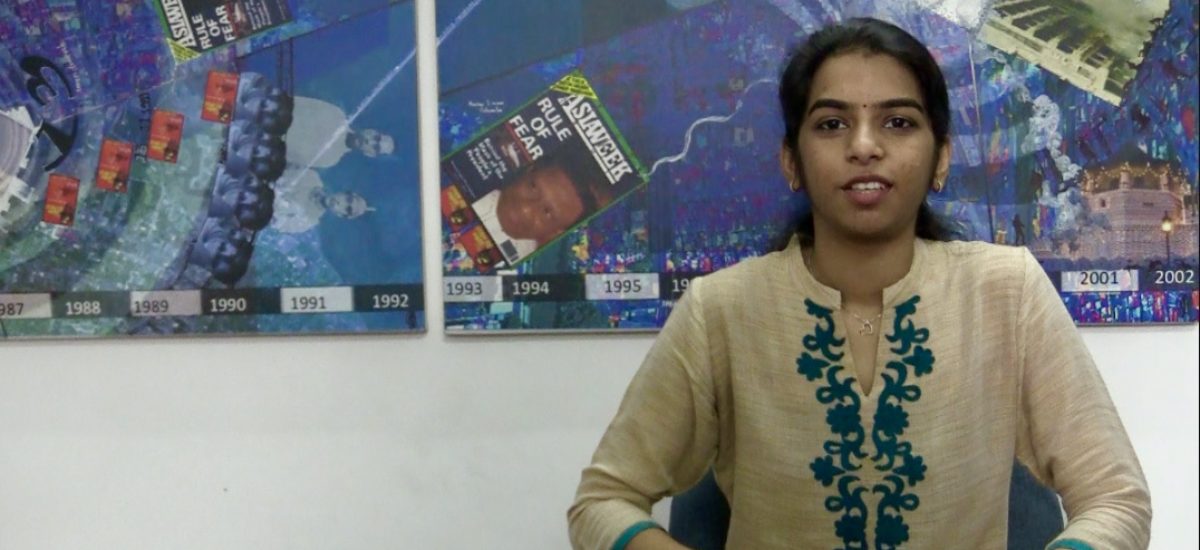Mahishaa Balraj faced real opposition when pushing for gender equality at her college in Chennai. In response to her campaigning, Mahishaa was the target of vicious cyber attacks that forced her to take down her personal social media accounts.
The experience, rather than daunting her, gave her fresh determination to fight for her personal beliefs. This conviction led her and a group of friends to set up youth engagement and gender equality group Hashtag Generation.
The founding members of Hashtag Generation were youth delegates representing Sri Lanka at the United Nations, who wanted to take forward what they had learned there. Feeling that there was no space for youth participation, they decided to create their own group.
Initially, Hashtag Generation was completely anonymous, but as they engaged with the community on issues such as women’s political participation, this anonymity quickly wore away. “You could see the surprise on people’s faces when they met us. They asked us if we really were serious, if we knew what we were doing,” Mahishaa said. It took some time to convince people that Hashtag Generation was indeed serious, given that the group was non-partisan and not affiliated to any of “the usual players,” as Mahishaa puts it. However, this turned out to be an unexpected strength, as many parties came forward in support of fresh faces.
Yet Mahishaa faced cultural challenges, both as a woman and a member of the Tamil community. “Our work sometimes involves traveling across the country, and my family and extended family are very uncomfortable when I travel to different areas, either alone or with boys.”
Mahishaa’s extended family was also concerned that she would not be able to find a suitable husband. “There is constant pressure to marry early. Some of my aunts and uncles were concerned that I was engaged in political activism, which they felt was not suitable for a woman.” The family members would go to the extent of calling Mahishaa’s parents to ask why they were allowing her to engage in this line of work. It didn’t help either that Mahishaa had double degrees in Engineering and Law, which made her “overqualified” for a suitor, as some of her relatives opined.
“Members of my community are fine with women working. Yet when a woman is empowered in a different way… working in non stereotypical professions is a big no-no for them.”
One of the key areas Hashtag Generation works in is encouraging women’s political participation, and there have been barriers in getting members from different factions to work together towards a common goal. “Sometimes we’d organise regional meetings, and people’s first question would be, ‘Who else is participating?’” Mahishaa said. At times, several of the local women politicians would drop out at the last minute, or would try to dissuade the group from engaging with opponents. Convincing different factions to work together is something that Hashtag Generation continues to strive for.
For her part, Mahishaa says her work with Hashtag Generation has empowered her and given her a sense of fulfillment. This is what drives her to persist, despite pressure from her community. “It’s long hours, staying up late. But I don’t consider my work with Hashtag Generation to be work. It’s something I enjoy and have passion for rather than seeing as a task.”
Click here to read the previous article in the series. To read the next article, click here.

